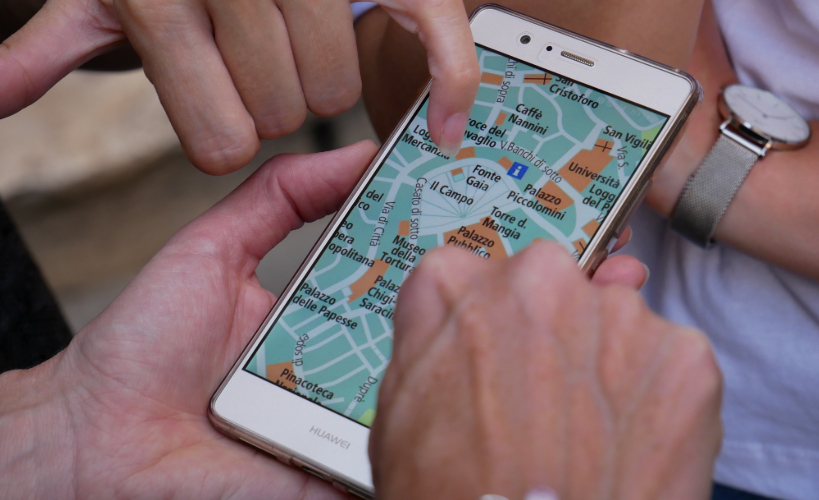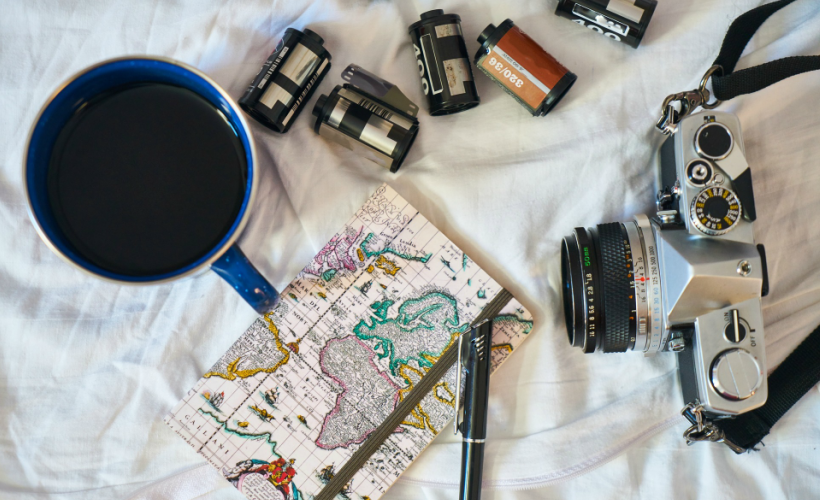A wild new trend is living as a digital nomad. Freedom, no roots to hold you down – what’s not to love? Taking on this lifestyle means that you essentially do all your work from a laptop that you carry with you. You just need that wonderful little piece of technology, an internet connection, a charger, and a job that allows for this kind of thing. Essentially, you don’t have to ever come to an office. All your work can be, and is, done through your laptop, the actual location being irrelevant. Your office is a train, a bus, a plane, coffee shops, public libraries, hostels, and bars.
Now of course, travelling so much carries its own risks. Anything from being in a place with no internet access to fulfill your deadlines to actual physical danger. Below are some tips on how to stay safe:
Do your homework
Before you set out to travel anywhere, do your homework. Visit forums and websites, hang out in chat rooms, and ask around whether the area surrounding your accommodation is safe. Remember, just one blog article is not enough — try to get as many sources as you can to paint as clear a picture as you can.
If you don’t have the time or the opportunity, ask the locals, the taxi drivers, and bartenders, to see what advice they can give you. They may advise you on the safest and cheapest places to stay at, where some good food can be found, where you shouldn’t go after nightfall, and where you shouldn’t go at all. Furthermore, weather forecasts are your friends, and staying updated will save you from any nasty surprises.
If the worst happens…

Scams and muggings happen, but you don’t want them to happen to you. Avoid dangerous and seedy areas and bars, and don’t carry all your cash with you. Always have around USD50 (or whatever currency you need) in your pocket, outside of your wallet. If someone wants to rob you, you can bait them with this money, and be on your way.
Of course, no amount of money is equal to your life. Don’t be a hero, stay calm, and don’t fight. Avoid wearing flashy jewellery and clothing, and carry an old, worn backpack (or one that looks like that) just in case.
Come prepared
Bring the appropriate clothing for the region, for that time of year. Dress in layers, and be prepared for the worst. Always focus on durability and utility; style can take a backseat. Always bring more money than you think you’ll need. Carry some protein bars and an extra bottle of water as well, in case you don’t have any access to food or water for a while.
If you hail from Australia, for example, and are used to the weather and food there, research some good local doctors in the area you are travelling to in case you get ill. A kind of ‘health shock’ happens to people who travel to a place widely different from their home. So, write down the names, addresses, and phone numbers of said doctors. If you’re travelling in a rented vehicle, get proper car accident insurance, and keep an attorney’s phone number with you, just in case.
Another good idea is to get some offline maps. A digital nomad travels a lot and doesn’t stay in one place for too long. This means that unless you intend to carry 20 pounds of maps with you everywhere you go, you should download as many as you can on your phone or tablet. Try not to rely on data as some areas won’t have sufficient coverage.
Decide how you want to travel

You need to figure out how you actually want to travel. Do you want to go by RV or by regular car? Maybe you prefer trains and buses, and the occasional plane. Depending on your choice, you need to prepare accordingly. The last thing you need is to end up stranded in a strange place where you don’t speak the language.
Cars are generally the safer option. Buses and trains are cheaper, but require much more planning, figuring out public transportation routes, and are generally less comfortable. This means you may be more open to getting robbed or losing your luggage. However, in certain areas, driving your own car can make you a target as well.
Blend in
When in Rome, do as the Romans do. Although we’re not saying you should condescendingly copy everything the locals do. You should, however, adhere to the customs and polite manners of the culture you arrive in.
Research the tipping ethic, how you should dress, how to greet people, and how to behave in restaurants and public places. Something that can be seen as benign in your own country can be construed as a grave offence abroad. Having the right manners can help you make some friends along the way (who can in turn help you stay safe and give you advice).
Overall, the life of a digital nomad is exciting and wild, but can be dangerous as well. If you keep your style modest, are smart about your travels, make some friends, and do your homework, you’re going to be right as rain.



![In Pursuit Of Happiness – Why I Left Singapore To Become A Digital Nomad [VIDEO]](https://zafigo.com/wp-content/uploads/2017/09/Chrys1.jpg)
